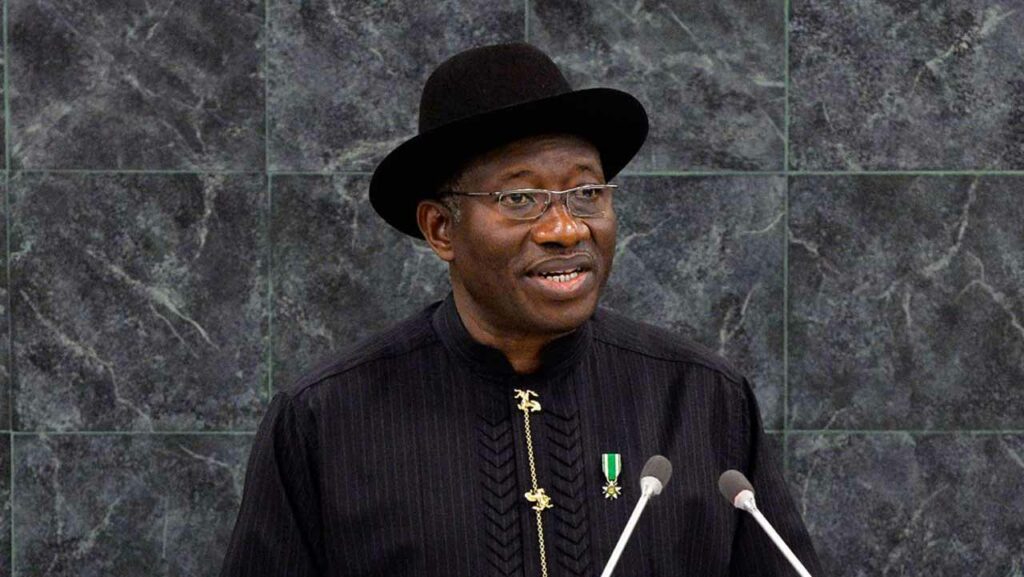- Jonathan also noted that the blizzard of litigations that characterized the aftermath of elections in Nigeria undermined the country’s democracy.
Former President Goodluck Jonathan has called out the judiciary over the handling of political and election cases by Justices and lawyers.
He said some judgements by some courts in the country put the country’s democracy at great risk.
Jonathan expressed his concern when he spoke at the 67th birthday celebration of a Senior Advocate of Nigeria, Prof. Mike Ozekhome, in Abuja.
He called some judgements on election matters a “cone being turned upside down”, adding that he was sad at what the judiciary had become.
Lamenting the desecration of the Nigeria’s judiciary system, the former president said, “The way things are going in this country, especially listening to the judgments being given regarding political cases, we are beginning to see that democracy in Nigeria is like a cone that is being turned upside down.
“And if a cone is turned upside down it cannot be stable and at the slightest perturbation, it will fall. When I listened to some senior lawyers like Olisa Agbakoba making comments on some Supreme Court’s judgments, I felt very sad that the country has got to that level.”
He noted that for democracy to endure in the country, people both at the Bar and the Bench should not be carried away by political influence.
Jonathan also noted that the blizzard of litigations that characterized the aftermath of elections in Nigeria undermined the country’s democracy.
“If our democracy will endure, people, both at the Bar and the Bench, should not be carried away by political influence. That is the only way we can stabilise the political process.
“I know the lawyers enjoy it because after elections there is always an avalanche of litigation, because it is like Christmas for lawyers.
“But in most other countries, people don’t go to court, but in Nigeria, pre-election matters and post-election matters fill all the courts and it does not give a good sign for democracy.”
“Comparing Nigeria to other African countries and those outside Africa, because I have been able to get involved in their electoral processes, it worries me.”
